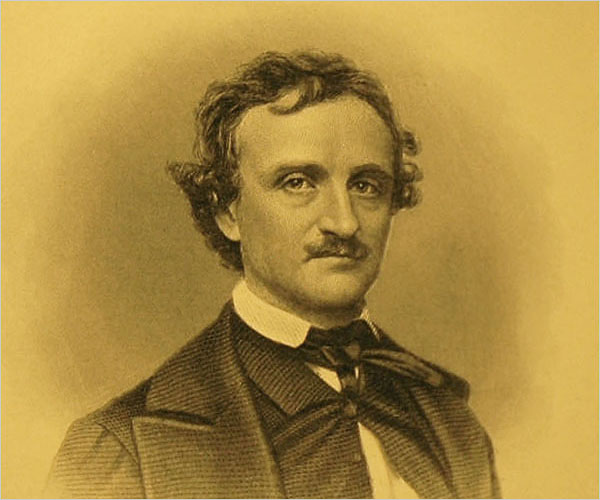Edwin Arlington Robinson- Edwin Arlington Robinson was born in Head Tide, Maine, on December 22, 1869. Unlike other authors whose works are frequently anthologised, Edwin Arlington Robinson has not been the subject of popularity for more than half a century. Edwin, who started collecting words at the age of ten, and began writing verses when eleven, was put into a grammar-school as his father thought it would be good for him. Books were what he enjoyed the most; Charles Dickens was one of his favourites. On the lines of Hagedorn, Robinson had realised, with his growing up, that poetry was an “individual self-expression”. He was always known to have an interest in the unusual form of poems; and expressed intense dislike for the lofty language used by the poets. His love for his writing over other materialistic things could be seen when in the year 1893, his family went through a serious financial trouble. Robinson, even while considering the thought of joining the business in order to make some money, he however could not give up his art. “I am as poor as need be,” Robinson had uttered, “But that is all right. The loss of money is a small thing, after all, compared with other things.” Distraught after his mother’s death, he left Maine permanently and resettled in Peterborough, New Hampshire. His self publication, “The Torrent and the Night Before” reissued as “The Children of the Night” demonstrates a gripping and dramatic seriousness, particularly in “Richard Cory”and “Luke Havergal,” two of his more frequently anthologised and recited poems. A turning point in his life occurred with “Captain Craig”(1902), which found its favour with President Theodore Roosevelt. He was influenced by Thomas Hardy’s romanticism and the naturalism found in the writings of Emile Zola. A winner of three Pulitzer Prizes, he had published twenty-eight works until his death on April 6th, 1935.
Setting of Fragment-
A New Englander by birth and in poetic inspiration, Edwin Arlington Robinson is probably best remembered for his shorter verse depicting the ‘Tilbury town”. Most critics seem to agree that Robinson’s poetic power lies within his shorter lyrics. His poetry was transitional, evaluating the present by using traditional forms and by including elements of transcendentalism and Puritanism. ”Maine,’ a place where Robinson spent his childhood furnished him a setting for many of his poems as well as models for his characters. Thus, the Maine influence has been seen to make itself apparent among the more universal qualities of his poetry. However, it can also be noted that Robinson is obviously not a poet with inclinations towards nature in the conventional sense; his interests lie almost exclusively in character, psychology, the conflict of personal and social forces, and questions revolving around a man’s position in the entire sorry scheme of things in society. Many poems are completely barren of any kind of images of nature. Others, however, employ them with a startling and effective skill. As one might expect from a Maine poet, forest, farm, town, stream, and above all, sea images predominate. The poem under consideration, “Fragment,” takes Maine as its setting, describing the theme of decay and fragmentation that occurs with the gradual passage of time. It deals with the recurrent images of decaying or run-down houses, that creates an overwhelming sense of dismay and bleakness after one goes through its un-rhymed lines. The theme, here, is explicitly seen to be related to the character and times of the place Maine. Similar influence is noticed in his other poems like “The Dead Village,” King Jasper, and especially in “The Mill,” to name the few.
Poetic Devices of Fragment-
Anaphora: The same word “of” has been repeated- “of his houses where it hides and dies in a shade/of beeches and oaks and hickory trees.”
Symbol: The very title of the poem “Fragment” encapsulates the whole idea which is contained in the understated lines, i.e. the idea of fragmented feelings and alienation with the roots of one’s existence, with the roots here implying as the place of belonging.
Personification:
“Faint white pillars”- giving the inanimate object, the quality of a human being; to faint is to point at the fragile condition of the pillar.
“There are the pillars, and all gone gray”- implying the life of pillar that is on the verge of destruction, in the same manner as a human being ceases to exist with the passage of time and especially when not cared for; here perceived through Briony’s white hair.
Synecdoche: “And houses are built without hands, we’re told,” a phrase that sums up the whole idea of “home”. A house that is built not just by the labour force but through the endeavours of the family, is now seen destructed abrasively.
Style-
The poem has been written in three stanzas, with the first and last stanza in the rhyming scheme of ABABBCBC, and the second one with ABABBC. Written in iambic pentameter, the poem seems to be in free verse. The poet has used lexical repetitions to emphasise a significant image: “and” and “he” has been oft repeated.
Summary of Fragment-
Robinson, recognised as one of the finest and most distinguished poets of his time, was more inclined towards writing psychological poems with great subtlety. The opening lines “Faint white pillars that seem to fade/ As you look from here are the first one sees/ Of his house where it hides or dies in a shade,” suggests the many Maine mansions whose owners made fortunes, built houses to match them, and then in later generations moved away or declined. With the passage of time, and being alienated by its owners, these possessions have lost its glimpse, its liveliness, now just left to die in the shade of beeches and oaks. The theme of decay and dissolution is revealed through the images that pervade the lines of the poem.
Critical Analysis of Fragment-
The place, the people, and the times- these are among the major forces that help shape, influence, and direct an artist’s work. The Maine element that persists in majority of his poems establishes his affinity with the traditional life, the sea and river, farm and forest, that are the essential physical realities of Maine. The fragmentation of adherence, the attachment with one’s traditional belonging, has been shown in the poem, something which can be seen to be reflected in the present times as well.
Central Idea of Fragment-
The central idea that can be seen in “Fragment” is of estrangement. The inhabitants of the place talked about herein have lost their sense of belonging-ness with their traditional place. This poem closely reflects the fragmented relationship of modern man, that which is echoed by T.S Eliot in his “The Wasteland”.
Tone of Fragment-
The poem begins with a sombre tone and comes to an end with the same, with a mood of pessimism lingering still.
Conclusion- To conclude this intriguing poem, it can be noted that though Robinson was not a conventional poet writing on nature, he however did employ images of nature, majority from Maine, to reflect the psychology of an individual, the character in relation to his traditional roots from which he has alienated himself.
Some online learning platforms provide certifications, while others are designed to simply grow your skills in your personal and professional life. Including Masterclass and Coursera, here are our recommendations for the best online learning platforms you can sign up for today.
The 7 Best Online Learning Platforms of 2022
- Best Overall: Coursera
- Best for Niche Topics: Udemy
- Best for Creative Fields: Skillshare
- Best for Celebrity Lessons: MasterClass
- Best for STEM: EdX
- Best for Career Building: Udacity
- Best for Data Learning: Pluralsight














